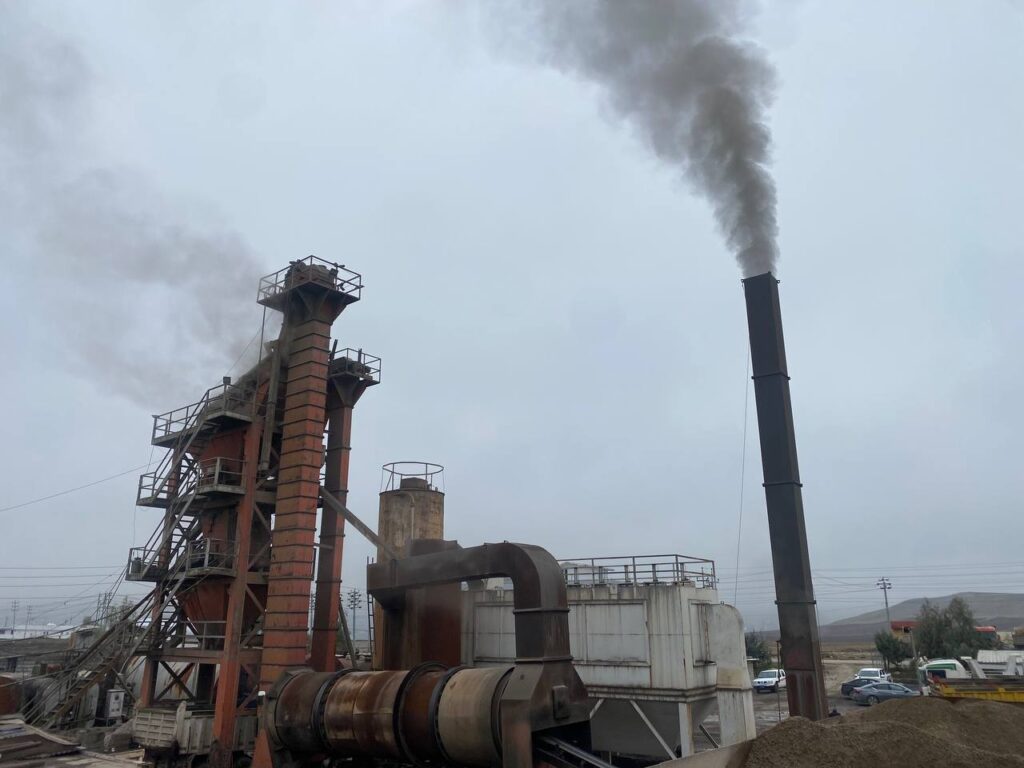Channel crossing: Why Iraqi Kurds are making risky journeys to Europe

Several of the 27 people who drowned trying to cross the Channel in an inflatable boat were Kurds from Iraq, raising questions about why they embarked on treacherous journeys from the Middle East to Europe.
Masrour Barzani, prime minister of Iraq’s Kurdistan Region, said his office was seeking to establish the identities of the Kurdish victims from Wednesday’s tragedy.
The incident was a potent reminder of the dangers of "illegal migration and the smugglers who send people to their deaths,” Barzani wrote on Twitter on Thursday morning.
Iraqi Kurds hit the headlines earlier this month when thousands of migrants from Kurdistan started trying to cross the Belarus-Poland border to enter the EU.
Charities in Calais, northern France, from where boats head to Dover in the UK, said a lot of the migrants there are Kurds who have paid smugglers to be moved through Europe.
So why are so many Kurds leaving home and risking their lives?
Is Iraq’s Kurdistan region unstable?
No, it is not - which may come as a surprise to many people in the UK and Europe.
The Kurdistan region in northern Iraq has been perceived as a success story for the country following the US-led invasion in 2003 and the rise of Isis in 2014.
The autonomous region has its own government and parliament. The semi-political disentanglement from Baghdad helped the region escape the political turmoil, social unrest, and sectarian violence that has dominated most of Iraq over the past two decades.
The battle-hardened Kurdish forces - known as the Peshmerga - proved highly effective at defending Kurdistan while the Iraqi soldiers were struggling to hold their ground against Isis fighters in Mosul, only 51 miles away from the region’s capital Erbil.
The relative stability at the time then created a fertile environment for the economy to boom.
Benefiting from oil reserves, a fixed share in Iraq’s federal budget, and foreign investments Kurdistan is seen as a haven of relative stability. The region has unsurprisingly become the safest place for displaced Iraqis to settle and has attracted other refugees from elsewhere.
Then why are Iraqi Kurds fleeing?
Recently, things seem to have changed for the worse.
Most Iraqi Kurds are angry at the growing authoritarianism by the Barzani family rule and widespread corruption. Under President Nechirvan Barzani and his cousin, the prime minister, the authorities have shown less patience with critics.
The police have arrested many dissidents and gagged the press. Anti-corruption protests last year failed to yield change, and calls for political reform fell on deaf ears.
Many others are disappointed at the failure of the Barzani family to achieve the region’s longstanding dream of establishing a nation-state. The Kurds have been scattered between Iraq, Iran, Syria and Turkey since the fall of the Ottoman Empire, and their struggle for an independent country has proven to be futile. A referendum on independence from Baghdad in 2017 - in which 93 per cent of Kurds voted in favour - didn’t lead to a break away from Iraq.
And then there’s the economy. Since 2014, low oil prices have been detrimental to the autonomous region’s budget. The significant economic backing by the UK and other western countries did not help to reinvigorate the economy or sustain growth.
Rising unemployment, endemic corruption, and cuts to state salaries have dented confidence in a brighter future for the autonomous region and kindled the desire in many Kurds to leave.
Why are Iraqi Kurds using Belarus as an entry point to the EU?
Belarus President Alexander Lukashenko may have seen Kurdistan’s problems as an opportunity to put pressure on the EU with an influx of refugees at its borders. The plan has two objectives: forcing the EU to lift some of the economic sanctions imposed on Minsk and reaching a financing agreement similar to the migration agreement that Brussels struck with Turkey in 2016.
The Belarusian authorities relaxed visa requirements for Iraqi Kurds and flew more planes from Erbil into Minsk to create an influx of refugees. They then shepherded a large number of them to the borders with Poland and abandoned them in no man’s land between the two countries.
The Kurdish authorities in Iraq told The Independent so far they have repatriated 400 of their citizens back to Kurdistan and have 700 more who are on the waiting list for the next flights.
But thousands of people still remain in the country despite an icy winter ahead, and many are likely to head to countries including Germany, France and the UK in search of a better life.


